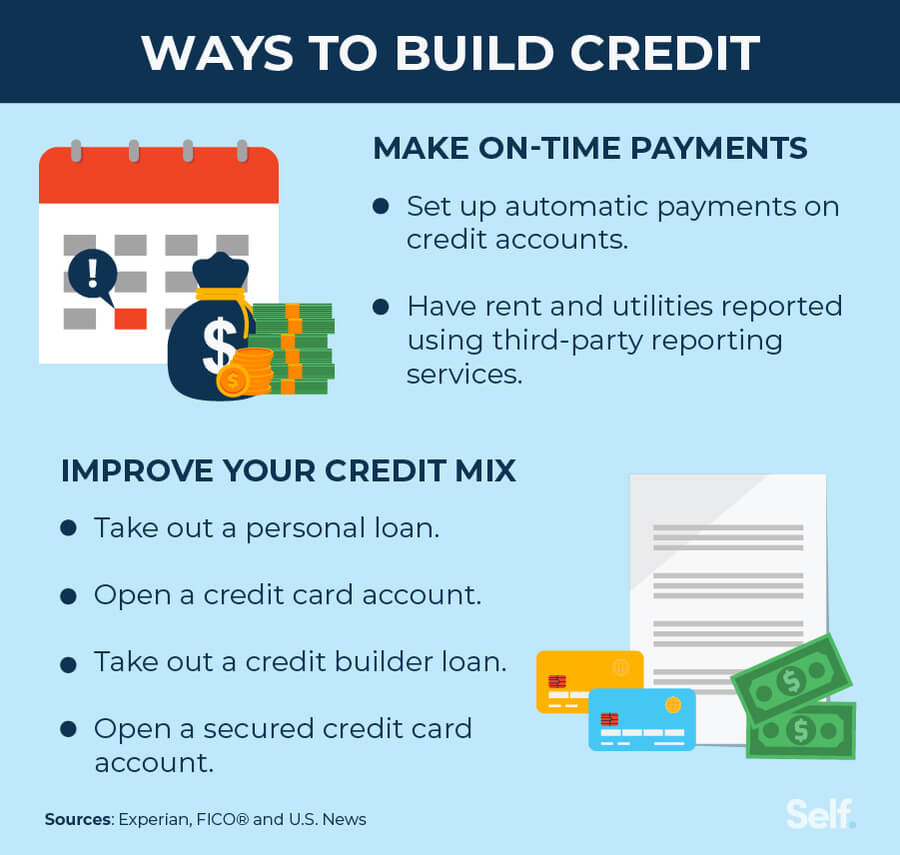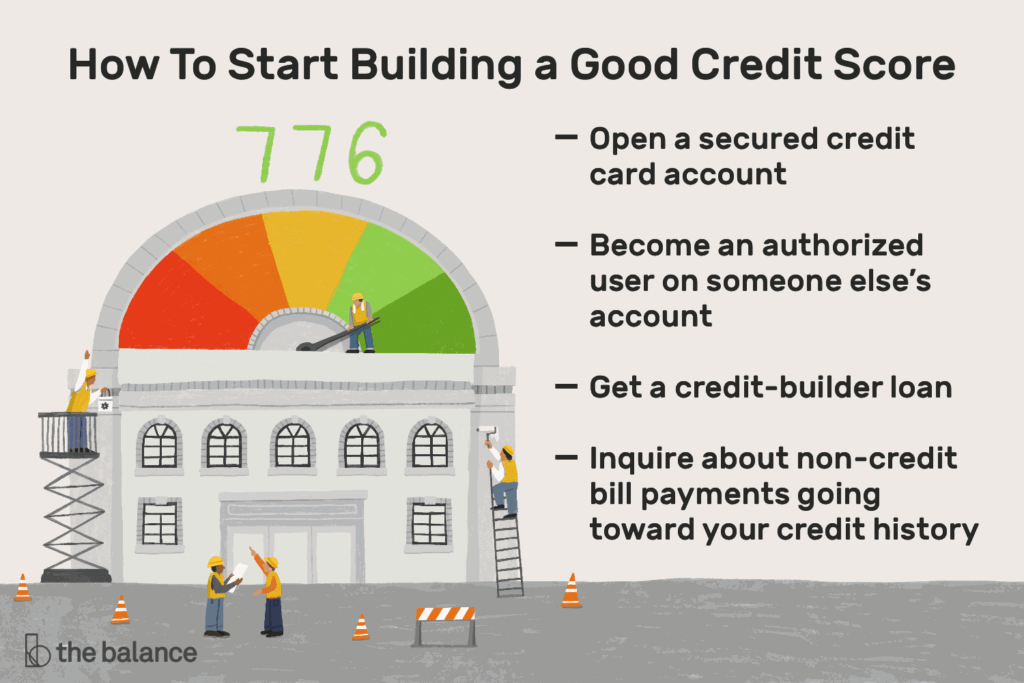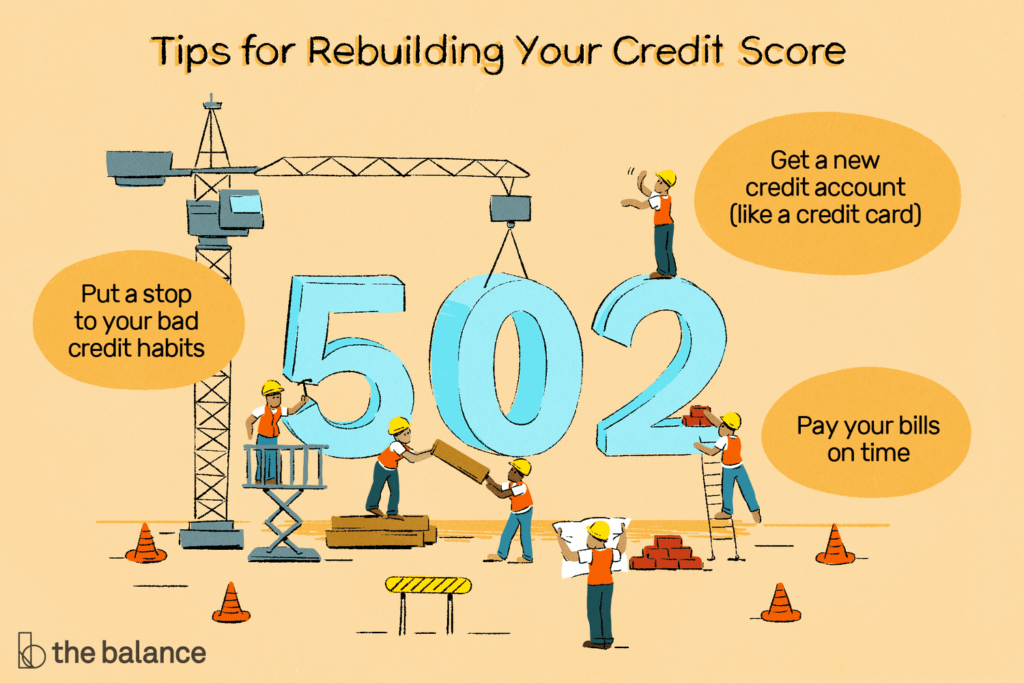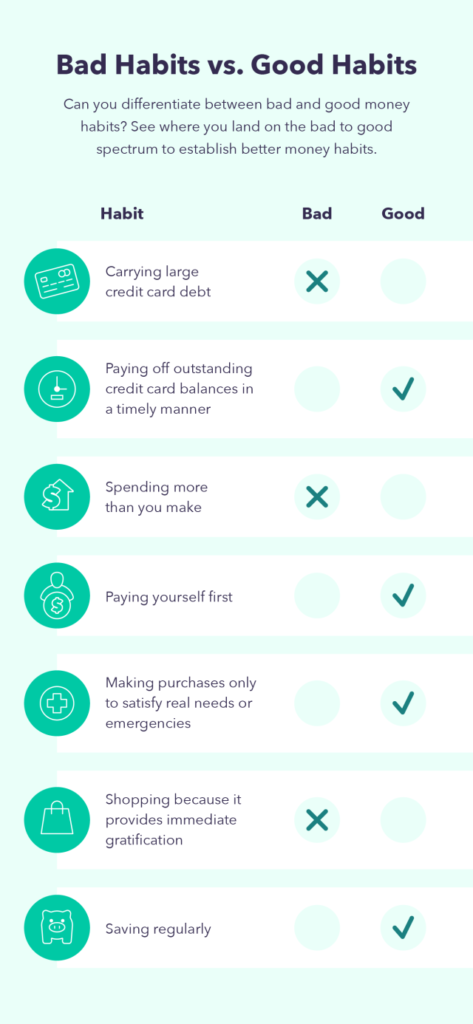In this article, you will learn about the importance of maintaining good credit and the habits you can develop to sustain your progress. Good credit is crucial for securing loans, obtaining lower interest rates, and overall financial well-being. By developing these habits, you can ensure that you continue to build a positive credit history and reap the benefits that come with it.
One important habit to maintain good credit is to pay your bills on time. Late payments can have a significant negative impact on your credit score, so it’s essential to prioritize timely payments. Another habit is to keep your credit utilization low. This means not maxing out your credit cards and keeping the amount you owe relative to your credit limit as low as possible. By practicing these habits and more, you can sustain your progress and maintain good credit in the long run.
Maintaining Good Credit: Habits To Sustain Your Progress
In today’s financially-driven world, maintaining a good credit score is essential for your financial well-being. A good credit score not only helps you secure loans at favorable interest rates but also opens up opportunities for better housing, employment, and insurance rates. It is important to understand the factors that affect your credit score, how to fix errors on your credit report, and debunk common credit myths. Building and rebuilding credit, managing late payments, and dealing with collections and charge-offs are key aspects of credit repair. Additionally, you have the option to choose between credit repair companies or opt for a do-it-yourself approach.
Understanding Credit Scores
Before diving into credit repair strategies, it’s important to have a solid understanding of what a credit score is and how it is calculated. A credit score is a numerical representation of your creditworthiness, which is based on the information found in your credit report. Lenders and financial institutions use credit scores to assess the risk of lending money to an individual.
Factors that Affect Credit Scores
Several factors influence your credit score, and understanding these factors can help you improve and maintain a good credit score. These factors include payment history, credit utilization, length of credit history, credit mix, and new credit inquiries. By keeping these factors in mind, you can make informed decisions about your financial habits and actions that impact your creditworthiness.
Importance of Monitoring Your Credit Score
Regularly monitoring your credit score is crucial for maintaining good credit health. By keeping a close eye on your credit report, you can spot errors and inaccuracies that might negatively impact your credit score. Moreover, monitoring your credit score allows you to stay vigilant against identity theft and unauthorized activities on your accounts. Numerous credit monitoring services are available that provide real-time updates and alerts for any changes in your credit profile.
Fixing Errors on Your Credit Report
It is not uncommon for errors to appear on your credit report. These errors can range from simple mistakes in personal information to more consequential inaccuracies in your payment history or account statuses. Identifying and rectifying these errors is essential for maintaining a healthy credit profile.
Identifying Errors on Your Credit Report
To identify errors on your credit report, carefully review each section of the report, including personal identifying information, accounts and balances, payment history, and public records. Look for any discrepancies or inaccuracies, such as accounts you don’t recognize, incorrect payment information, or outdated addresses.
Disputing Inaccurate Information
If you find inaccuracies on your credit report, you have the right to dispute them with the credit bureaus. Contact the credit bureaus in writing, providing detailed information about the error and any supporting documentation. The credit bureaus are obligated to investigate the disputed information and correct any inaccuracies within a reasonable time frame.
The Role of Credit Bureaus in Resolving Errors
Credit bureaus play a vital role in resolving errors on your credit report. Once you submit a dispute, the credit bureaus are responsible for investigating your claim, contacting the relevant creditors, and making necessary corrections to your credit report. It is important to follow up with the credit bureaus to ensure that the errors are resolved satisfactorily.

This image is property of images.ctfassets.net.
Debunking Common Credit Myths
There are several credit myths that often confuse individuals seeking to improve their credit scores. By debunking these myths, you can better understand how to effectively manage your credit and repair any past damage.
Closing Credit Cards Improves Your Score
Contrary to popular belief, closing credit cards may not always improve your credit score. In fact, closing credit cards can potentially harm your score, as it reduces your total available credit and can negatively impact your credit utilization ratio. Instead of closing credit cards, consider keeping them open and using them responsibly to maintain a healthy credit utilization ratio.
Checking Your Own Credit Lowers Your Score
Many people believe that checking their own credit will have a negative impact on their credit score. However, this is simply a myth. When you check your own credit, it is considered a soft inquiry, which does not affect your credit score. It is important to regularly monitor your credit report and score to stay informed about your financial health.
Paying off Debts Removes Them from Your Report
Another common misconception is that paying off debts will immediately remove them from your credit report. While paying off debts is a positive step towards improving your creditworthiness, the record of the debt will remain on your credit report for a certain period of time. Negative information, such as late payments or collections, can stay on your report for up to seven years, while bankruptcies can remain for up to ten years.
Building and Rebuilding Credit
If you have no credit history or have experienced credit setbacks in the past, building and rebuilding credit is essential for improving your credit score and overall financial health.
Establishing a Credit History
To establish a credit history, start by opening a credit card or taking out a small loan. Responsible credit card usage, such as making timely payments and keeping your credit utilization low, can help build a positive credit history over time.
The Importance of Responsible Credit Utilization
Credit utilization refers to the percentage of your available credit that you are using. Keeping your credit utilization below 30% is generally recommended for maintaining a good credit score. High credit utilization can signal financial instability and may negatively impact your creditworthiness.
Steps to Take When Starting from Scratch
If you are starting from scratch with no credit history, consider applying for a secured credit card or becoming an authorized user on someone else’s credit card. These options can help you establish credit without taking on the risk of unsecured credit.

This image is property of www.thebalancemoney.com.
Managing Late Payments
Late payments can significantly damage your credit score and make credit repair more challenging. However, there are strategies you can employ to avoid late payments and recover from past incidents.
The Impact of Late Payments on Credit
Late payments can have a detrimental impact on your credit score and creditworthiness. Even a single late payment can lower your credit score and remain on your credit report for up to seven years. It is crucial to make all payments on time to maintain a positive credit profile.
Strategies for Avoiding Late Payments
To avoid late payments, create a budget and set reminders for bill due dates. Consider setting up automatic payments or utilizing payment reminders through online banking platforms. By staying organized and proactive, you can minimize the risk of missing payments.
Recovering from Late Payment Incidents
If you have a history of late payments, the best strategy is to consistently make on-time payments moving forward. Over time, the impact of previous late payments will diminish, and your credit score will gradually improve. It is also beneficial to communicate with your creditors and negotiate alternative payment arrangements if necessary.
Credit Repair Versus Debt Settlement
When facing financial challenges, it is important to understand the difference between credit repair and debt settlement and weigh the pros and cons of each option.
Understanding the Difference Between the Two
Credit repair focuses on improving your creditworthiness by addressing errors, inaccuracies, and negative information on your credit report. Debt settlement, on the other hand, involves negotiating with creditors to pay off a debt for less than what you owe. While credit repair aims to improve your credit score, debt settlement aims to alleviate financial burden.
Pros and Cons of Credit Repair
Credit repair can be a highly effective way to improve your credit score and overall financial health. However, it requires time, effort, and patience. It is important to be aware of potential scams and choose reputable credit repair companies if you decide to seek professional assistance.
Pros and Cons of Debt Settlement
Debt settlement can provide immediate relief from overwhelming debt. However, it can also have negative consequences, such as a significant negative impact on your credit score and potential tax consequences. Debt settlement should only be considered as a last resort when all other options, including credit counseling and negotiation with creditors, have been exhausted.

This image is property of www.thebalancemoney.com.
Dealing with Collections and Charge-Offs
Collections and charge-offs can have severe consequences for your credit score. It is essential to understand these terms and develop strategies for resolving collection accounts.
What Are Collections and Charge-Offs?
Collections are accounts that have been transferred to debt collectors after a period of delinquency. Charge-offs, on the other hand, occur when a creditor writes off a debt as a loss and reports it as such on your credit report. Both collections and charge-offs have significant negative effects on your credit score.
Methods for Resolving Collection Accounts
To resolve collection accounts, start by reviewing the information on your credit report and contacting the collection agency to validate the debt. Once the debt is validated, negotiate a settlement or payment plan that you can afford. Be sure to obtain written confirmation of any agreements made and make payments as agreed.
Rebuilding Credit After Collections and Charge-Offs
Rebuilding your credit after collections and charge-offs can be a challenging process. However, by making on-time payments, keeping credit utilization low, and practicing responsible financial habits, you can gradually improve your credit score and regain financial stability.
Choosing Repair Companies or DIY Repair
When it comes to credit repair, you have the option to hire professional repair companies or tackle the process yourself. It is important to weigh the benefits and drawbacks of each approach.
Benefits and Drawbacks of Hiring Repair Companies
Hiring a credit repair company can save you time and effort, as they have extensive knowledge and experience in navigating the credit repair process. However, it is crucial to conduct thorough research and choose a reputable company to avoid scams or unethical practices. Additionally, hiring a credit repair company comes with a cost, and you should consider whether the potential benefits outweigh the fees.
Steps to Take If Opting for DIY Credit Repair
If you choose to undertake credit repair yourself, start by obtaining copies of your credit reports from all three major credit bureaus. Carefully review the reports for errors or inaccuracies, and dispute any discrepancies directly with the credit bureaus. Additionally, establish good financial habits, such as making on-time payments and keeping credit utilization low.
Best Practices for Successful Credit Repair
Whether you choose to hire a credit repair company or go the DIY route, there are certain best practices that can increase your chances of success. These include staying organized, keeping detailed records, and being persistent in your pursuit of credit repair. Additionally, educate yourself about your rights under the Fair Credit Reporting Act to ensure that your rights are protected throughout the process.

This image is property of blog.mint.com.
Maintaining Good Credit as a Habit
Once you have made progress in repairing your credit, it is crucial to maintain good credit habits to sustain your progress and continue improving your creditworthiness.
The Importance of Consistent Financial Discipline
Consistent financial discipline is key to maintaining good credit. This includes making on-time payments, keeping your credit utilization low, and avoiding unnecessary debt. By practicing good financial habits, you can ensure that your credit remains in good standing.
Tips for Responsible Credit Card Usage
Responsible credit card usage is essential for maintaining and improving your credit score. Use credit cards sparingly and only for necessary purchases. Pay off your balance in full each month and avoid carrying high balances. Regularly check your credit card statements for any unauthorized charges or errors.
Developing Healthy Spending and Saving Habits
Developing healthy spending and saving habits is crucial for long-term financial health. Create a budget and stick to it, tracking your income and expenses. Identify areas where you can cut back on unnecessary spending and allocate funds towards saving or paying off debt.
Conclusion
Maintaining good credit is an ongoing process that requires consistent effort and discipline. By understanding the factors that affect your credit score, fixing errors on your credit report, and debunking common credit myths, you can set yourself on a path to credit health. Whether you choose to build and rebuild credit, manage late payments, deal with collections and charge-offs, or hire repair companies versus opting for DIY repair, it is essential to make informed decisions and take proactive steps towards improving your creditworthiness. By maintaining good credit habits and continuously monitoring your credit profile, you can sustain your progress and enjoy the benefits of a healthy credit score. So, start or continue your credit repair journey today and pave the way for a brighter financial future.

This image is property of images.prismic.io.
